When it comes to securing a spot at your dream university, a strong recommendation letter can make all the difference. Having someone who knows your strengths and talents speak on your behalf can truly set your application apart from the rest. Whether it's a teacher, mentor, or employer, the right words can highlight your unique qualities and potential. Curious to learn how to craft the perfect letter? Read on for tips and examples that will help you shine!
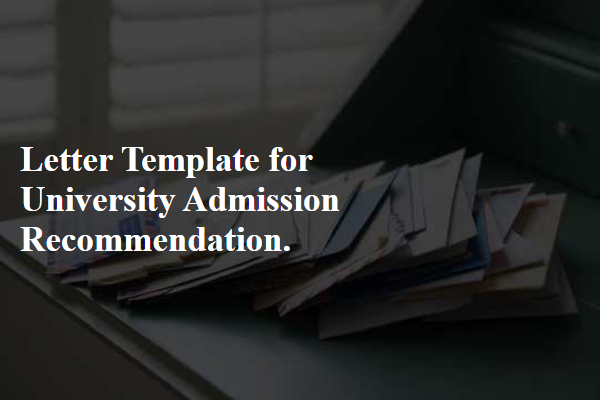
Personalization and Salutation
Universities often seek personalized recommendations that highlight a student's strengths and character. For example, a thoughtful letter might begin with a warm salutation addressing the admissions committee. The introduction could include the writer's relationship with the student, such as a mentor or teacher who has observed the student's growth over time. Key details about the student's achievements in academics, leadership roles, and community service can make a significant impact. Including specific examples, like a science project that won a regional award or volunteer work that benefited local charities, can provide context and depth. Moreover, mentioning the student's qualities, such as resilience, curiosity, and teamwork skills, helps convey their potential contribution to the university environment. Personal anecdotes can enrich the letter, illustrating how the student's passion for their field developed or how they overcame a challenge. Overall, a well-crafted recommendation letter reflects a deep understanding of the student's capabilities and aspirations, making a strong case for their admission.
Introduction and Relationship
Impressive educational institutions, such as Harvard University (established in 1636) and Stanford University (founded in 1885), place significance on recommendations from individuals who have firsthand experience with a student's capabilities. In my relationship with [Student's Name], I have served as their [Your Position, e.g., teacher, mentor] at [Institution Name] for [Duration, e.g., two years]. During this time, I have closely observed their academic growth and personal development, particularly in subjects like [Specific Subjects or Skills]. My role allowed me to gain insight into their dedication, critical thinking skills, and ability to collaborate effectively with peers. This unique perspective positions me to provide a comprehensive and honest evaluation of [Student's Name]'s qualifications for admission to your esteemed program.
Academic and Personal Qualities
A standout applicant often demonstrates exceptional academic and personal qualities that distinguish them from their peers. Academic achievement is typically showcased through high GPA scores, standardized test results such as SAT or ACT, and involvement in advanced placement courses. Personal qualities include traits like resilience, as observed in students overcoming obstacles, and leadership, evidenced by positions in clubs or organizations, particularly in community service initiatives or student government. Attributes such as curiosity and a passion for learning can also emerge from engagement in research projects, internships, or extracurricular activities that demonstrate commitment beyond classroom settings. Supportive references can often cite specific examples highlighting an applicant's dedication, work ethic, and interpersonal skills, contributing to their potential for success in a higher education environment.
Specific Achievements and Examples
John Smith, a senior at Lincoln High School, has demonstrated exceptional academic prowess with a consistent GPA of 4.0 in advanced placement courses, particularly in calculus and physics, where he scored in the top 10% nationally on the AP exams. His innovative project at the annual regional science fair won the first prize, showcasing his strong analytical skills and creativity. Moreover, he led the robotics team to victory at the National Robotics Championship in 2023, where they ranked first out of 50 competing teams. Beyond academics, John volunteered over 100 hours tutoring underprivileged students at the local community center, emphasizing his commitment to making a positive impact in his community. His strong leadership abilities, coupled with his dedication to education and technology, make him an exemplary candidate for any esteemed university program.
Conclusion and Endorsement
A strong endorsement can significantly influence a university admission decision, particularly when highlighting a candidate's unique attributes and accomplishments. For instance, a recommendation for a student applying to Harvard University should emphasize academic excellence, demonstrated leadership skills, and significant community involvement. The conclusion must succinctly reiterate the candidate's suitability, underlined by specific achievements such as a GPA of 4.0, leadership as president of the National Honor Society, or volunteer work at local food banks, which underscores their commitment to service. Ultimately, a compelling recommendation should convey confidence in the candidate's potential to excel in a challenging academic environment while contributing positively to the campus community.
Letter Template For University Admission Recommendation. Samples
Letter template of university admission recommendation for undergraduate applicants.
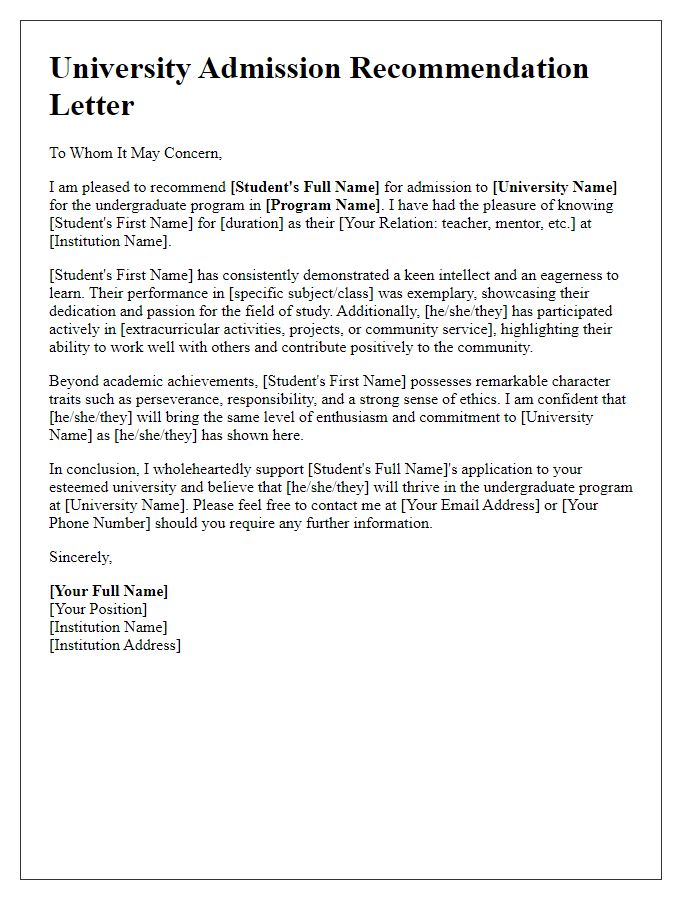
Letter template of university admission recommendation for graduate school candidates.
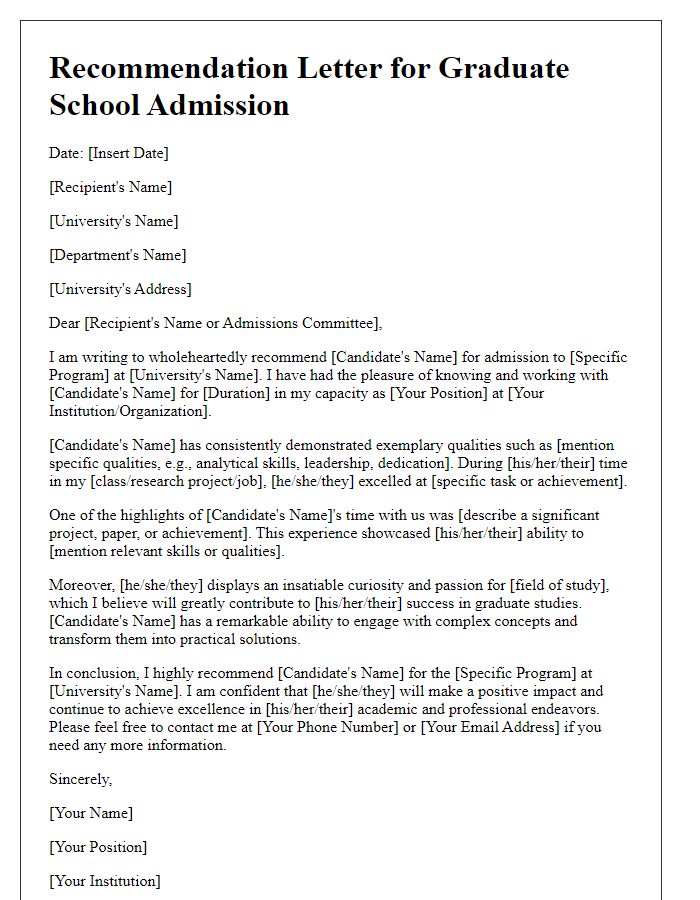
Letter template of university admission recommendation for international students.
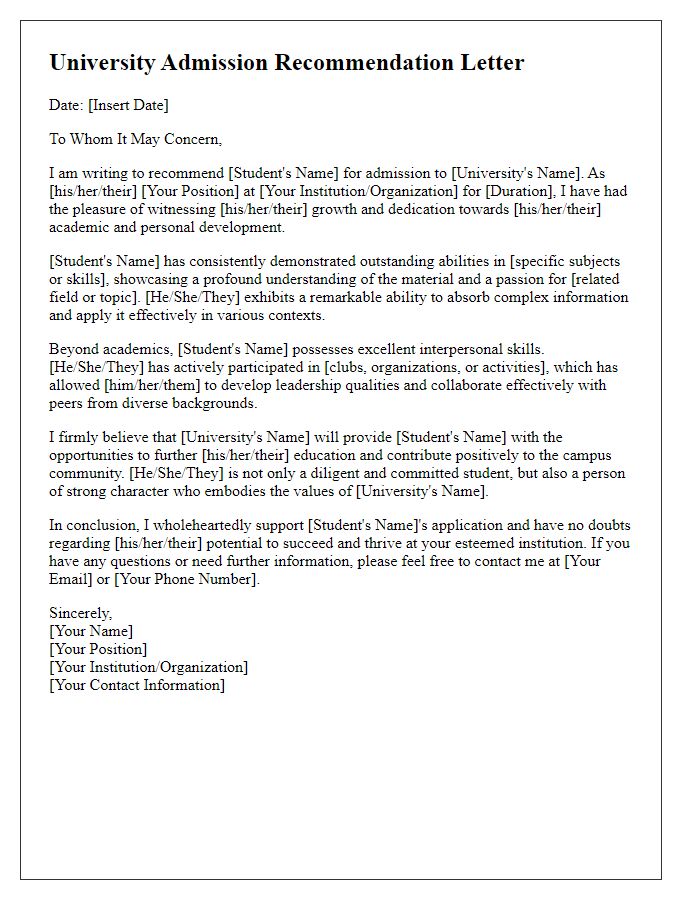
Letter template of university admission recommendation for scholarship seekers.
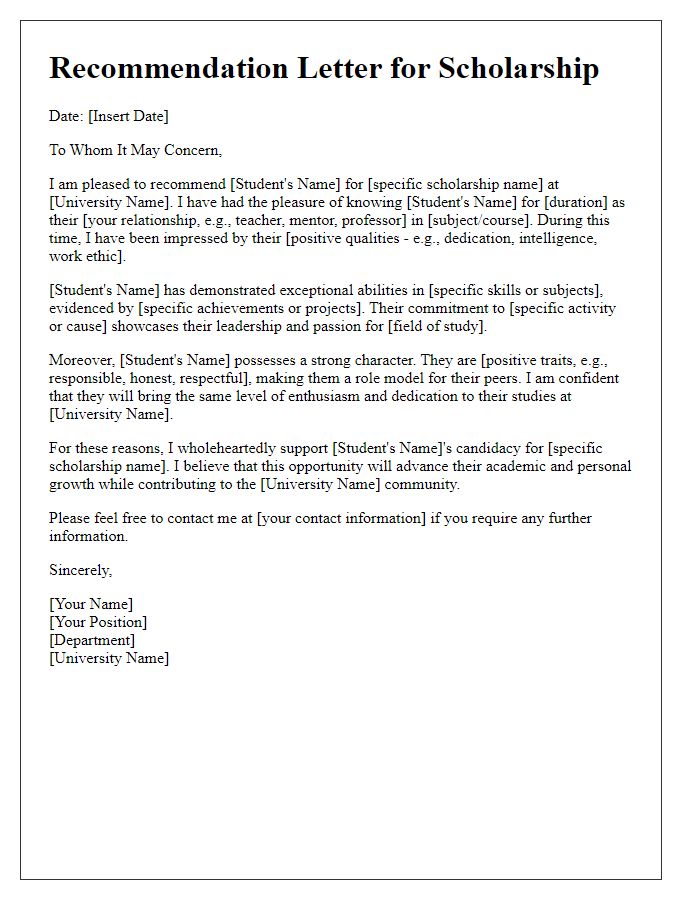
Letter template of university admission recommendation for transfer students.
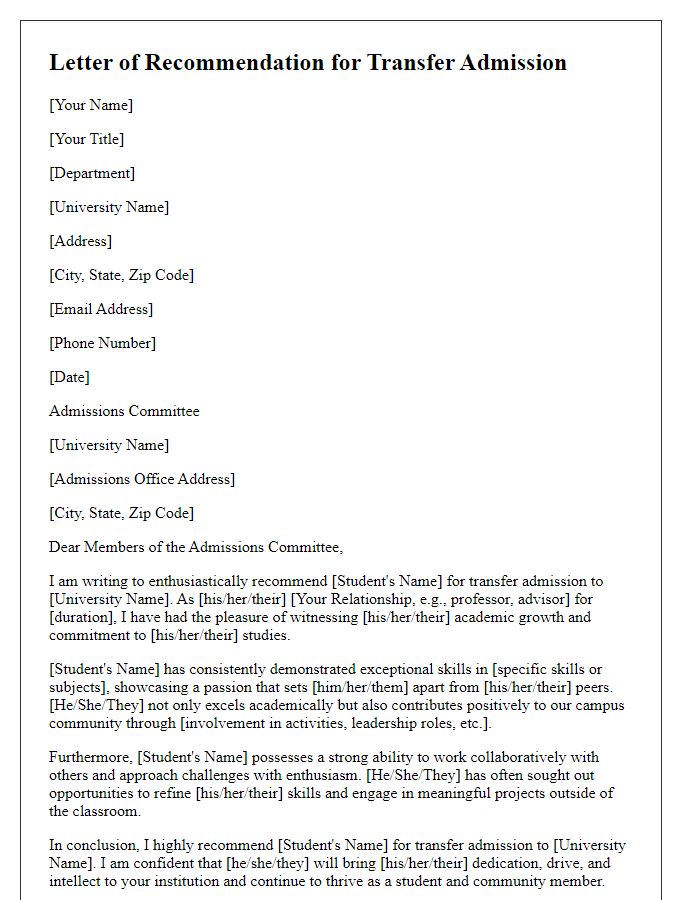
Letter template of university admission recommendation for honor program applicants.
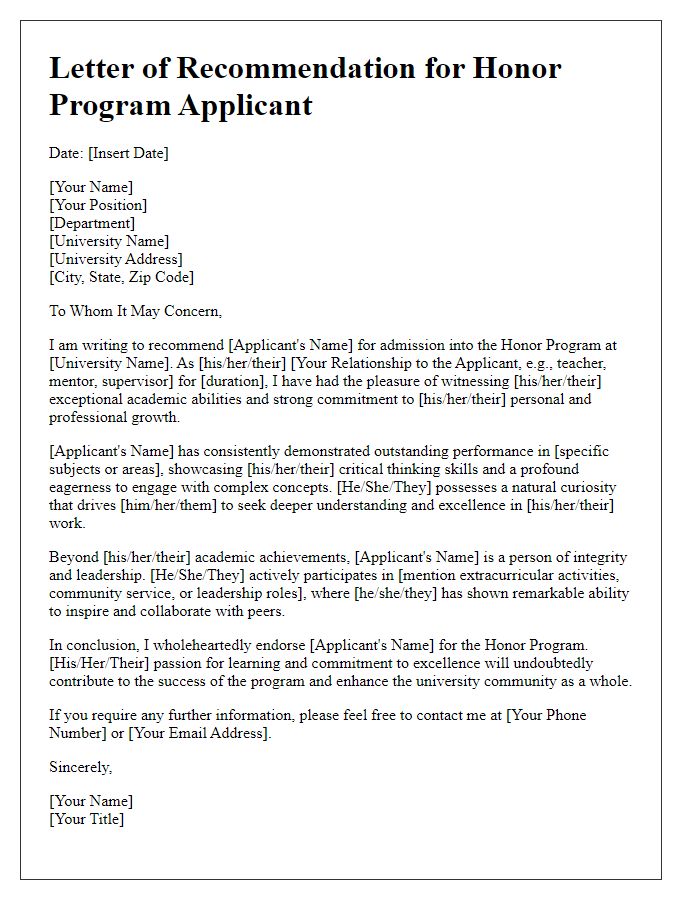
Letter template of university admission recommendation for aspiring medical students.
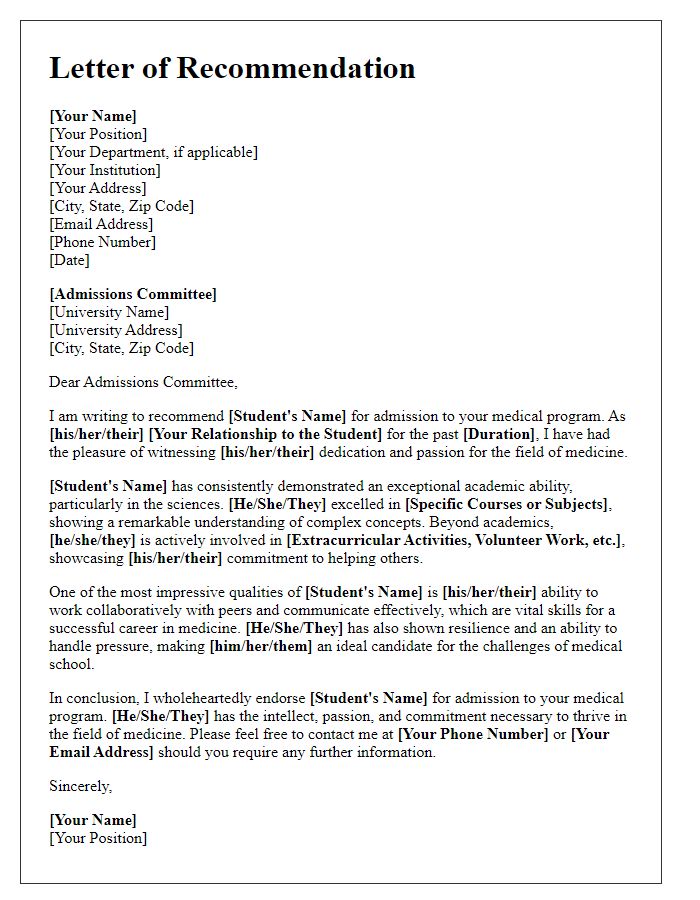
Letter template of university admission recommendation for students with GPA enhancement.
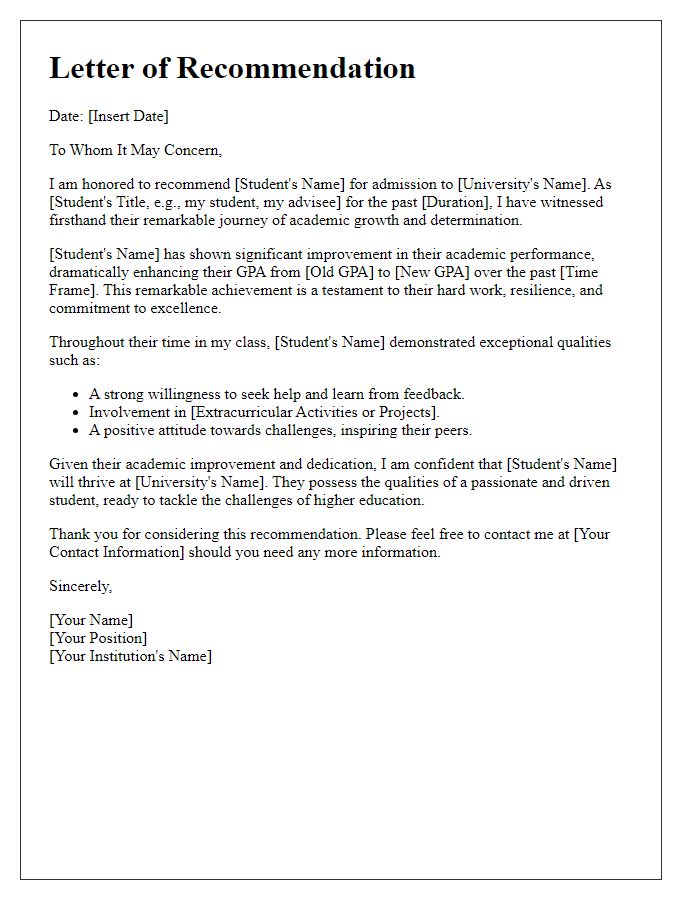
Letter template of university admission recommendation for art or design program applicants.
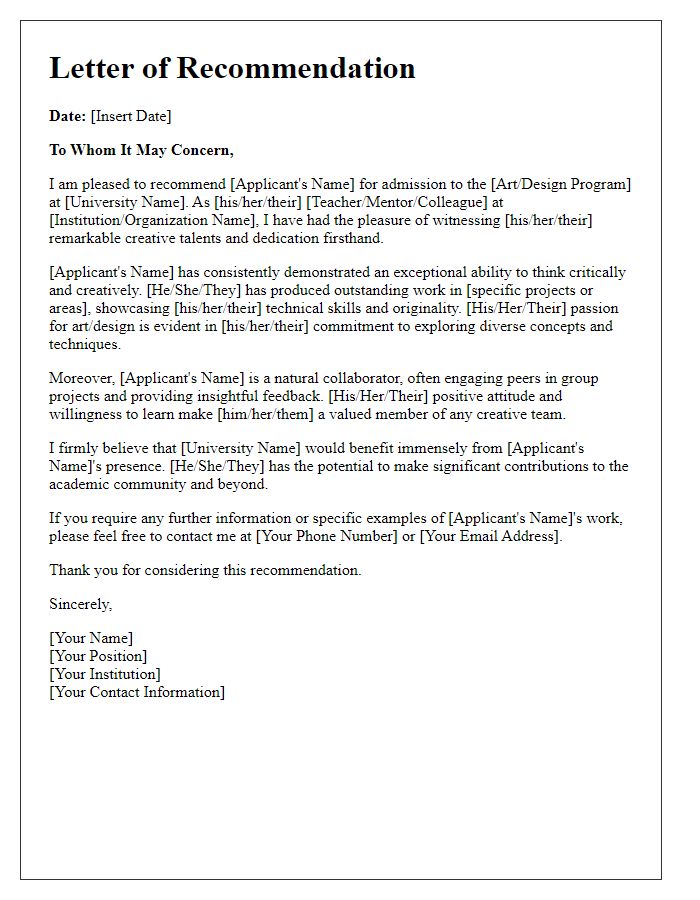

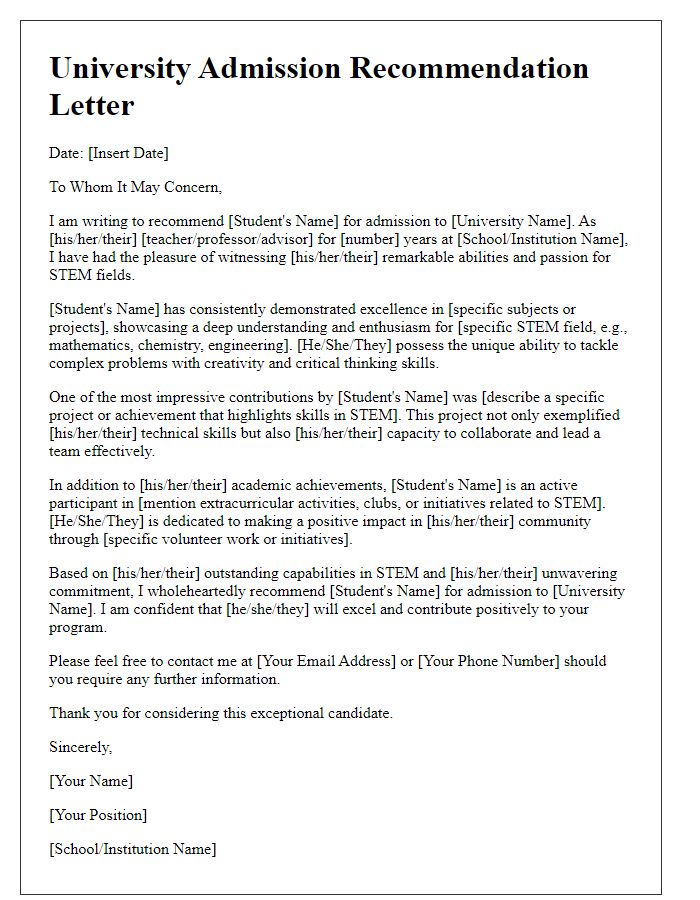


Comments